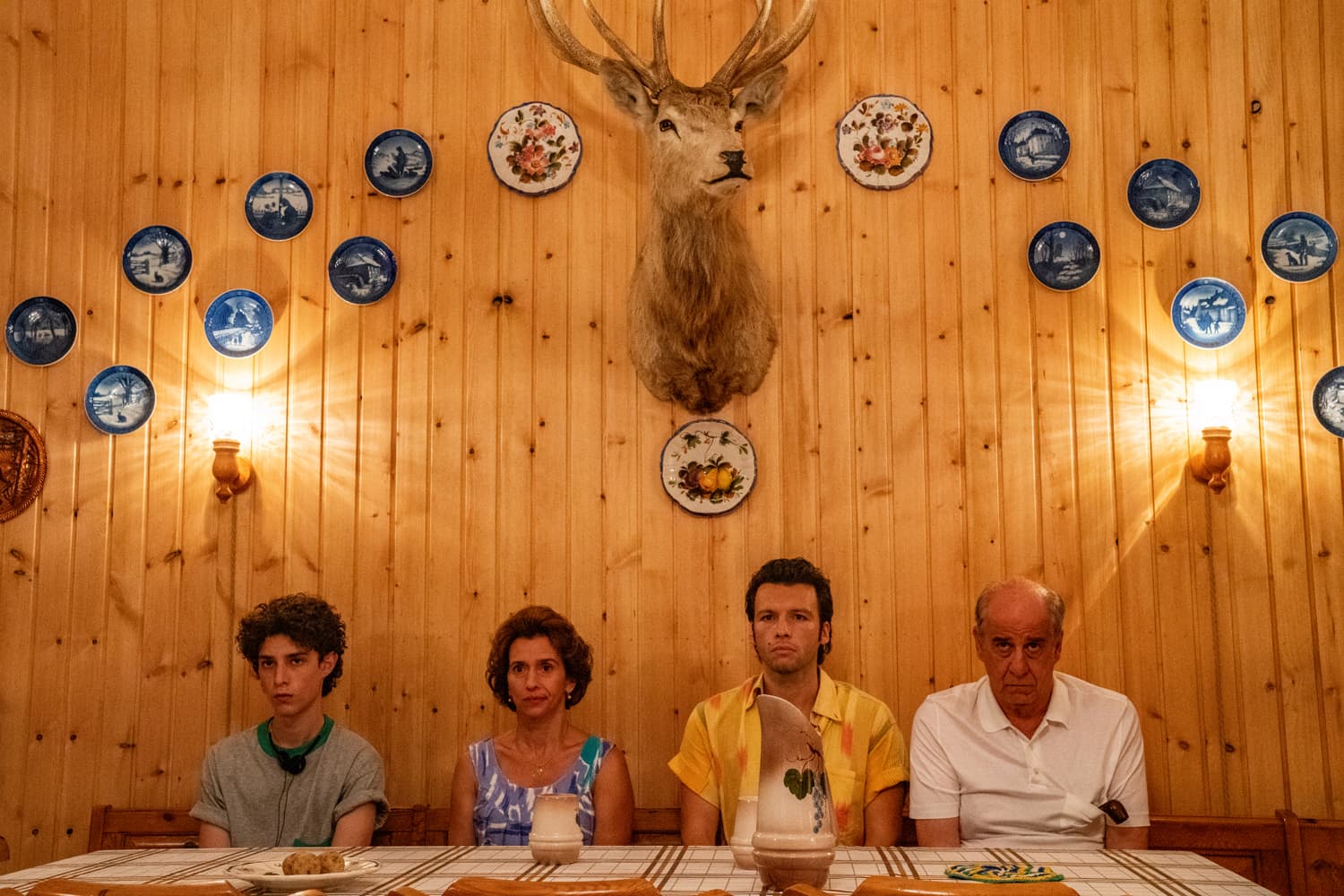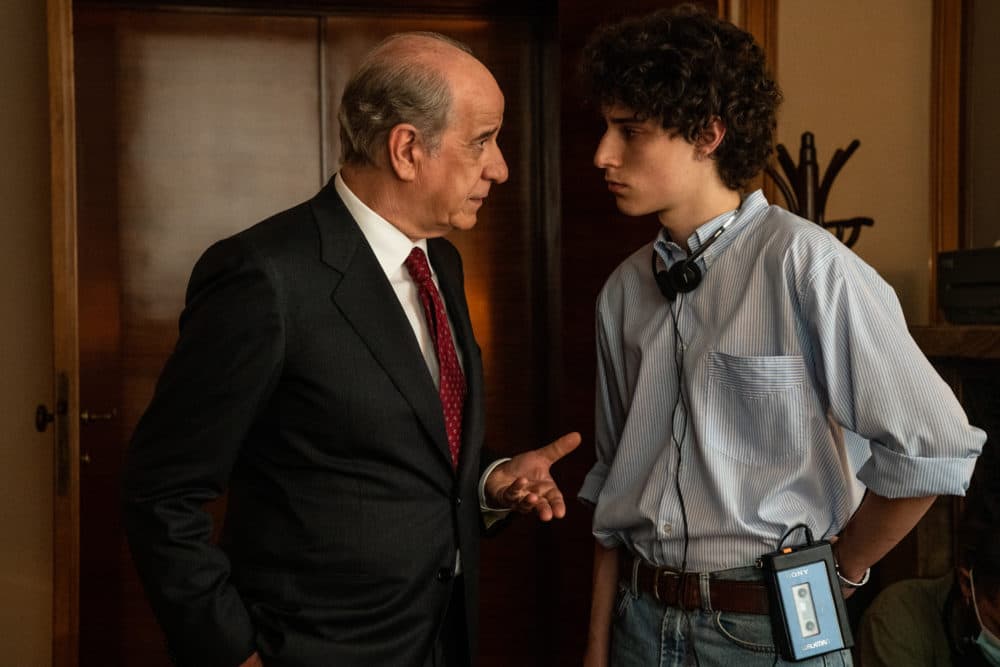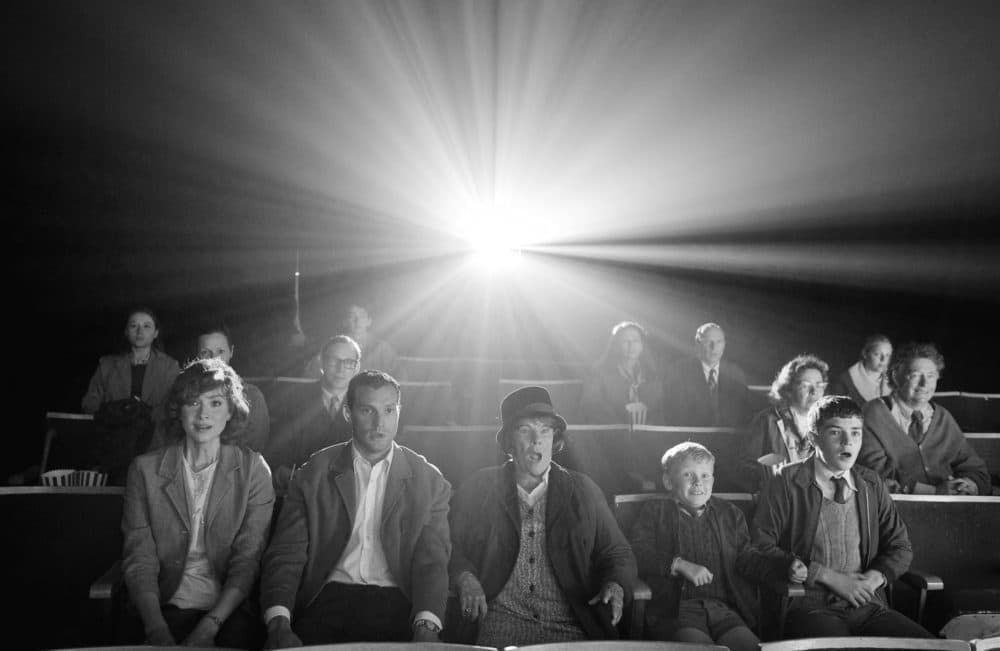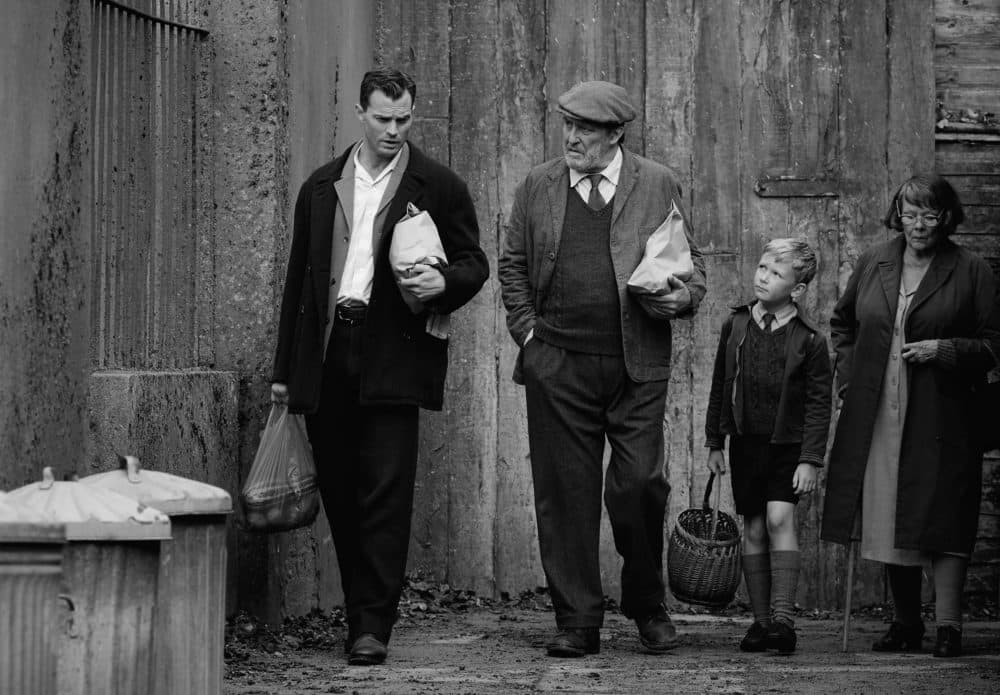Advertisement
Review
Films 'The Hand of God' and 'Belfast' tell semi-fictionalized tales of the directors' origin stories

If an auteur is allowed to work freely for long enough in this industry, odds are eventually they’re going to end up making a movie about their childhood. François Truffaut may have started off with “The 400 Blows,” but typically films like Federico Fellini’s “Amarcord,” Woody Allen’s “Radio Days” and Spike Lee’s “Crooklyn” arrive a little later in the careers, after they're lauded enough to start feeling reflective. The breakout success of Alfonso Cuarón’s “Roma” has made such memory pieces fashionable again in a big way, and I would argue that despite not being explicitly autobiographical, Quentin Tarantino’s “Once Upon a Time… in Hollywood” and Paul Thomas Anderson’s upcoming “Licorice Pizza” attain an extra-endearing dimension by being so abuzz with fondly remembered sights and sounds from the filmmakers’ formative years. Two new films, Paolo Sorrentino’s “The Hand of God” and Kenneth Branagh’s “Belfast,” tell semi-fictionalized tales of these two artists’ upbringings, nostalgic origin stories about their hometowns and how they grew up to become movie directors. One of them is really weird and specific while the other is anodyne and banal. Guess which one’s going to the Oscars?
Shockingly restrained compared to other Paolo Sorrentino films, “The Hand of God” nonetheless begins with a braless woman being goosed by a tuxedo-clad San Gennaro in a ruined mansion, next to a fallen chandelier and a hooded, mystical dwarf. This might seem like business as usual for the exuberantly extravagant (and unabashedly horny) Italian director of pictures such as “The Great Beauty” and “Youth.” But then the odd encounter is revealed to be a dream, or rather, another hallucination had by our protagonist’s abused, mentally ill Aunt Patrizia (Luisa Ranieri). Awkward teenage Fabietto (Filippo Scotti) is fixated on his mother’s sister, staring awestruck as she sunbathes nude in front of the entire family and trying to ride his little scooter to the rescue whenever her husband beats her again for her erratic behavior.
This odd, off-putting relationship is one of many curious tangents in Sorrentino’s film, which collects snapshots from a childhood in 1980s Naples leading up to Fabietto’s departure for Rome at the age of 18. Sorrentino doesn’t seem particularly concerned with making us like his family, allowing them to indulge in all sorts of mean-spirited pranks and uncharitable comments about one another — “When did you all become such disappointments?” an elderly relative asks at every dinner — but we kind of can’t help but warm to them all the same. The Schisas, as they’re called in the film, are always unreservedly themselves. Fabietto’s sister spends the entire picture in the bathroom — even during funerals — and his shamelessly adulterous dad (Toni Servillo, in his sixth Sorrentino film) has one of my favorite recent movie lines, strolling through town while pointing out historical landmarks to his son, “See that column? I spent the entire war leaning against it.”

Sorrentino’s most recent effort, “Loro,” was a two-movie, 204-minute biopic of famously debauched Italian prime minister Silvio Berlusconi (played by Servillo, of course) that was Frankensteined by U.S. distributors for its American release into a single, 145-minute feature that didn’t make a lick of sense, but offered pageantry and drug orgies for days. It’s understandable that he’s scaled back a bit for his latest, least decadent film, sumptuously shot by cinematographer Daria D'Antonio. “The Hand of God” takes its title from the nickname of Argentine soccer legend Diego Armando Maradona, who reached the peak of his career playing for Napoli in the mid-1980s, and young Fabietto (as well as young Sorrentino) once skipped out on a ski trip with his parents to see him play, avoiding a tragedy that would alter his family’s life irrevocably.
His life thus “spared by the Hand of God,” Fabietto now has no idea what to do with it. The second hour of the film is markedly different from the bawdy, boisterous first, numbed by grief and survivor’s guilt. What’s fascinating about the character’s evolution is that he’s hardly a cinephile. (There’s a VHS copy of Sergio Leone’s “Once Upon a Time in America” sitting unwatched on top of his TV for the film’s entire running time.) Instead, he gravitates toward the idea of making movies as a means of revenge on life, of regaining control. Fabietto so hates the crummy hand he’s been dealt, he wants to create an entirely different reality to live in, and cinema allows him to build newer, more beautiful worlds from scratch. I’m not sure “The Hand of God” always works, but I felt like I understood something important about Paolo Sorrentino and his elaborately constructed, deliriously excessive pictures when it was over. And I was happy that he could make a film in which his sister finally comes out of the bathroom.
Advertisement

By contrast, I learned nothing about Kenneth Branagh after watching his rhapsodically received “Belfast,” save for wondering if his real-life parents could possibly have been this hot. Set in 1969 Northern Ireland, the odds-on favorite for this year’s Oscar takes an ebullient, child’s-eye view of The Troubles while trying to meld a hackneyed, schoolboy coming-of-age saga with ethnic cleansing. Blonde, elementary school-aged Branagh stand-in Buddy (Jude Hill) is confused as to why his neighbors are suddenly building barricades and throwing Molotov cocktails at the “Cat-licks,” and the film has little interest in investigating or explaining the situation beyond that. There are some bad bullies on the block starting riots with increasing frequency, and it’s only a matter of time before Buddy’s sensible, distractingly sexy parents played by “50 Shades of Grey” stud Jamie Dornan and leggy Caitriona Balfe will move the kid to England so he can someday join the Royal Shakespeare Company and make “Henry V” and “Much Ado About Nothing” and a few other films I enjoyed so much more than “Belfast.”
It’s a very vague movie, fixated on signifiers like “Star Trek” reruns and outdoor toilets while lacking any specifics in character or political history. Ciarán Hinds and Judi Dench are adorable as the same curmudgeonly grandparents you can find in any cable Christmas picture, they just happen to be played by two of the best actors on the planet. “Belfast” runs a quick 96 minutes — same length as one of those holiday Hallmark movies sans commercials — and glosses over the tumultuous events of this family’s life in a barrage of quick cuts and upbeat Van Morrison music cues on the soundtrack. (There are nine Van Morrison songs in this film. Nine. Speaking as a super fan who has spent way too much money to see the surly Irishman in concert not once, but twice: this feels excessive.)

We also must address the bizarre manner in which “Belfast” has been photographed. Branagh and his regular cinematographer Haris Zambarloukos obviously saw “Roma” a whole bunch of times and liked it a lot, borrowing the low-contrast black-and-white digital video, distractingly hyper-separated audio tracks and approaching every shot from the most unexpected, obtuse angle they could possibly find. But it isn’t lit to make the characters stand out from their surroundings, so all the people’s faces are buried in the brick wall backgrounds and elaborate cloudy skies, nothing pops to command our attention, and Branagh banishes the actors to far — often opposite — corners of the screen, making us search and scan with our eyes to find what we’re supposed to be reacting to in any given scene. There’s no rhyme or reason to the placement of these performers, and simple matters of screen direction are a lost cause. Somebody’s walking this way, then they’re walking the other way. Then a Van Morrison song comes on.
I first saw “Belfast” at the Brattle Theatre during IFFBoston’s Fall Focus back in October, and given the deafening Oscar buzz, I recently watched the first hour of it again at home via a digital screener to see if I might have been overreacting to how aesthetically unpleasant the experience was for me first time around. Nope. But the one nice thing I can say is that no matter how cockamamie his camera placement, Branagh always, almost obsessively, foregrounds the short-skirted Caitriona Balfe’s exceptional legs. It’s a weird way to shoot your Movie Mom, but also the one visual decision upon which I think he and Paolo Sorrentino might probably agree.
“The Hand of God” opens at the Kendall Square Cinema and Coolidge Corner Theatre on Friday, Dec. 3 and starts streaming on Netflix Wednesday, Dec. 15. “Belfast” is now playing at Kendall Square Cinema and the Coolidge Corner Theatre.
